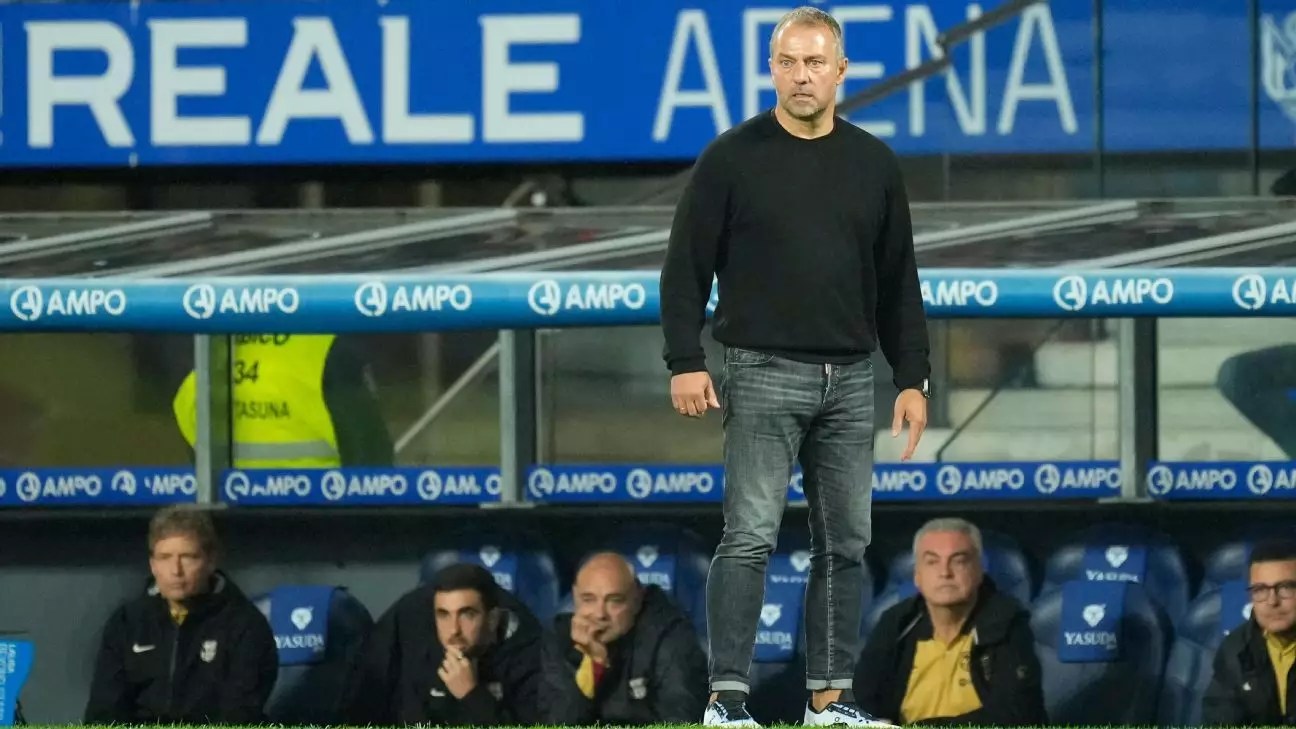In a high-stakes battle against Real Sociedad, Barcelona’s hopes of extending their winning streak in LaLiga came to an unexpected halt, culminating in a narrow 1-0 defeat. This match, marked not only by the loss but also by controversy surrounding a disallowed goal from star striker Robert Lewandowski, serves as a reminder of the fine margins that can sway the outcome of a match. The contentious nature of the decision offers a window into both the technology’s challenges and the emotional impact on teams and coaches alike.
Barcelona’s coach Hansi Flick was left fuming over the disallowed goal in the 14th minute when semi-automated offside technology (SAOT) ruled that Lewandowski had infringed the offside rule. Despite the abundance of technology in modern football intended to enhance fairness and accuracy, this incident highlighted the inherent struggles with its implementation. The marginal call, which hinged on the slightest of fractions—Lewandowski’s toe juxtaposed against Nayef Aguerd’s positioning—has reignited debates about the use of SAOT in LaLiga.
Flick explicitly criticized the decision, stating it was a “wrong decision, clear,” indicating how the dynamics of the match could have been altered had that goal stood. While he acknowledged the fallibility of referees—pointing to the human element in officiating—there is a growing sentiment among fans and analysts that such margins should not dictate the outcomes of professional sports.
This defeat marked the end of Barcelona’s impressive seven-game winning streak across all competitions. More importantly, it underscored the psychological weight that such streaks carry for teams. Losing can have a compounding effect; a singular defeat can shake confidence and alter the trajectory of a season. Furthermore, the absence of key players like 17-year-old sensation Lamine Yamal, who showcased a stellar season prior to his injury, further complicates matters for Flick. Some might suggest that missing a player of Yamal’s caliber during critical matches inevitably impacts team performance, although Flick rightly refrains from attributing the loss solely to his absence.
In the post-match analysis, the coach maintained a balanced perspective. Acknowledging prior successes and the team’s overall performance before the match’s misfortunes, he encouraged a focus on the broader context rather than one setback. This approach is essential in maintaining team morale and ensuring that disappointment does not evolve into a pattern of negativity.
The Role of Technology and its Implications
The ongoing controversies surrounding VAR and its derivatives—specifically SAOT—underscore the need for continuous improvement in the implementation of these technologies. While leagues in Europe, like Serie A, have adopted SAOT, the slow roll-out into competitions like the Premier League suggests a cautious approach to technology’s integration. Flick’s sentiments reflect a larger frustration among coaches and players regarding the inconsistency of decisions, stemming from reliance on technology that, in this instance, has seemingly failed to capture the spirit of the game.
The reliance on technology raises an essential question: can it truly enhance the integrity of football, or does it risk alienating the very essence of the sport? Flick’s acceptance of the decision, albeit with dissatisfaction, showcases a growing acknowledgment within football of the dual-edged sword that technology presents.
With the national team fixtures approaching and uncertainty looming over Yamal’s inclusion, Barcelona’s immediate future is uncertain. However, the team’s resolve and the coach’s attitude will be paramount in steering them back onto a successful path. Flick emphasized the need for resilience—the ability to learn from setbacks and improve. Such a mindset is critical for a squad that aspires to reclaim a dominant status in Spanish football.
This match serves as a microcosm of the evolving landscape of football, where technology and human error intertwine in significant ways, affecting teams’ desires, strategies, and victories. As Barcelona regroups during the international break, it is evident that each match and decision counts, laying the groundwork for future triumphs or disappointments.


Leave a Reply